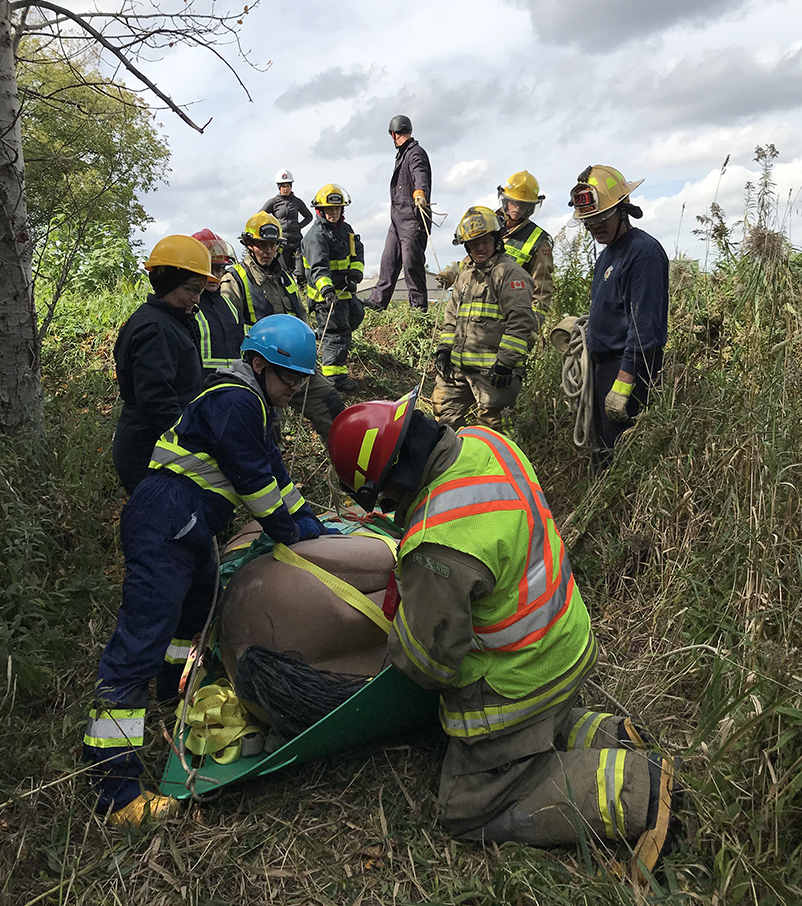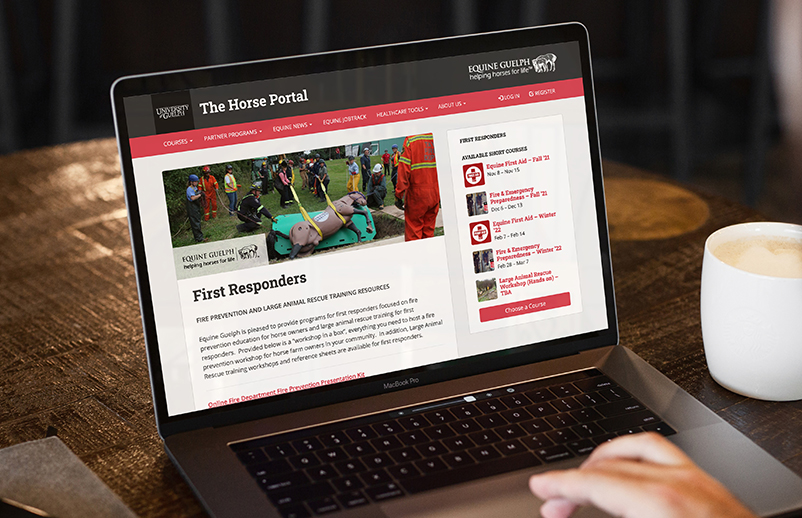Livestock, including horses, are transported daily on roadways. Related transport accidents can involve loose, injured or dead livestock as well as human injury or death. Distressed animals can be unpredictable and dangerous and they can present a risk of injury to responders.
Large numbers of livestock travel daily on Ontario roadways in Canada. For example, in 2019, Ontario Standardbred racing carried out 57,000 horse movements and Ontario cattle sales were over 400,000. To respond to any related transportation incident involves putting people and animals at risk. Responders require training in large animal response to reduce on-scene time, costs and to improve human and animal welfare outcomes.
Responder training varies between emergency response departments. Large animal rescue and livestock emergency response training provided in hands-on and virtual manners is an effective forum and creates positive change. Through proper training using best practices, risks to responders and others involved in livestock transport incidents are mitigated.
Training programs are provided by Equine Guelph, University of Guelph and Farm & Food Care Ontario. Equine Guelph’s online education program on TheHorsePortal.ca is a partnership with the provincial equestrian federations (Canada), Equestrian Canada, the Ontario racing industry and various local organisations. Farm & Food Care Ontario is a coalition of Ontario livestock groups (farmfoodcareon.org/livestock-emergencies).

Large animal rescue training for responders.
Image: Susan Raymond



